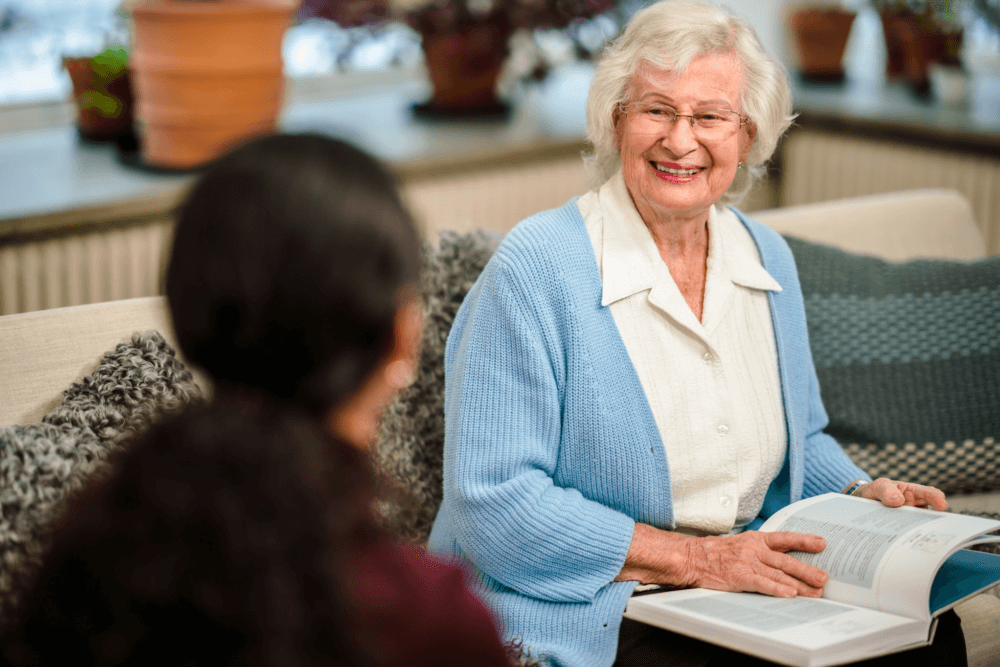Finding Care For Your Relative
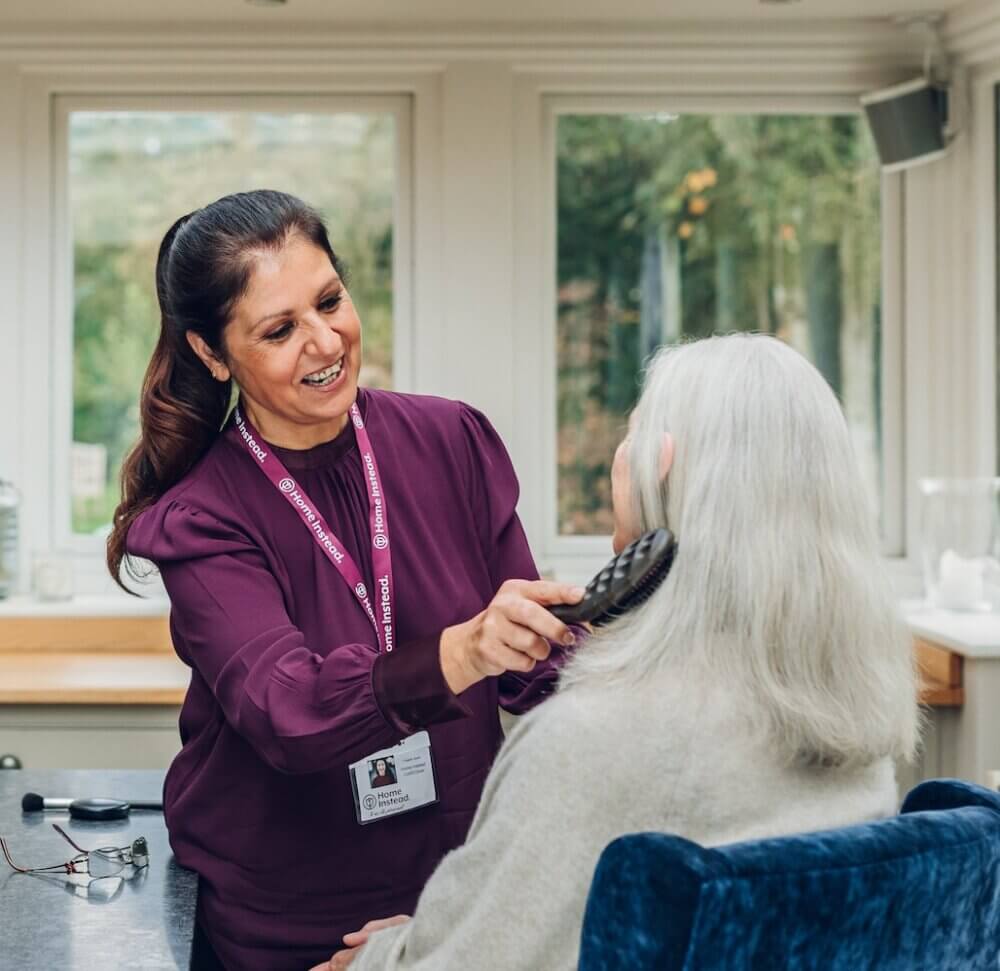
As a home care company we at Home Instead in Worthing & Steyning are regularly asked for advice by people concerned about the welfare of their relatives or neighbours who may need support.
Most of us are lucky enough to take good health for granted, and so when the need arises for us or one of our relatives to accept support, it’s often a big, unexpected, and unwelcome surprise. On the surface, it all seems simple enough: Mum just needs someone to help her with the meals, or remind dad to take his medicine. But once you embark on the journey, you quickly realise that it’s not just persuading mum or dad to accept the help that’s challenging… the quality of services available is hugely variable: get it wrong and mum or dad might be put off and be unlikely to accept help again. Too often the experience leaves people very unhappy, feeling let down, or worse, guilty that they’ve done something wrong.

Luckily, there are lots of common themes and lessons to be learned. For the purposes of this article we have characterised the challenges families face in three ways:
- Resistance to care e.g.
- My relative needs support, but says they don’t want help
- My relative is becoming depressed / withdrawing from social situations
- My parents are in denial about their care needs
- My parents have had care before and been put off
- Navigating the health and social care system e.g.
- Urgent care needs: my relative has had a fall / is being discharged from hospital etc.
- I don’t have the time / I can’t get there / I don’t know how to help
- Too many options: where do I begin?
- Do we need to consider home care or a residential facility?
- Do we need live in care or home care visits?
- I’m looking for specialist support e.g. dementia care, end of life care
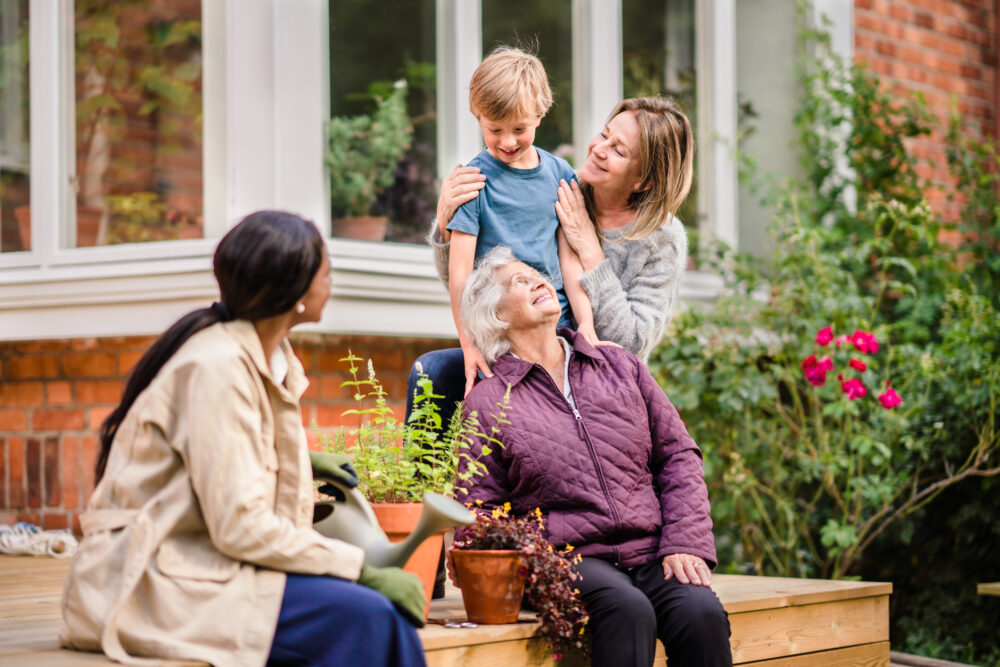
Resistance to care: “I don’t want help”
Modern families work quite differently to how they used to a generation or two ago. Our liberal values have persuaded baby boomers’ children to strike out on new and different paths from their parents, often in different parts of the world, never mind the same country. This means as mum or dad start needing, or asking for support from us, their children, we feel uneasy – either too far away to help, or uncertain of how to do so, or both. To compound the problem, Mum and Dad love us more than their own comfort, so don’t want us worrying, reassuring us they really don’t need any help at all. In turn, we believe they are either in denial about their declining health or ignorant of the changes that are obvious to the rest of us. But your parents are proud and have lived alone for decades, so aren’t in the mood for you, or worse, carers telling them how to live their lives, never mind when they should eat breakfast or which days they should shower on. Makes a lot of sense when you think about it that way. So what to do?
In most cases, we should try to be less instructive, but give people time to talk openly about the changes they are experiencing. Old age creeps up on us all. How we choose to deal with it, assuming we still have the mental capacity to do so (a thorny question for another post), is ultimately, completely up to us. Whether you’re old or young (as those with their own children know too well), you can’t change the way others behave unless you give them a compelling reason to do so, or at least provide some evidence of why it may be a good idea.
When you’ve lived your life the way you want to for decades, it’s pretty demeaning to have choices taken away from you by your children or health professionals, particularly when you are only too well aware that those choices, like you, have a limited life span. So naturally, we hold on to them. Sadly though, the result of controlling only what you can accomplish completely by yourself is reduced activity which quickly leads to low mood. And the evidence is irrefutable: reduced activity levels, and consequent reduction in emotional well-being, are directly correlated with shortened life expectancy.
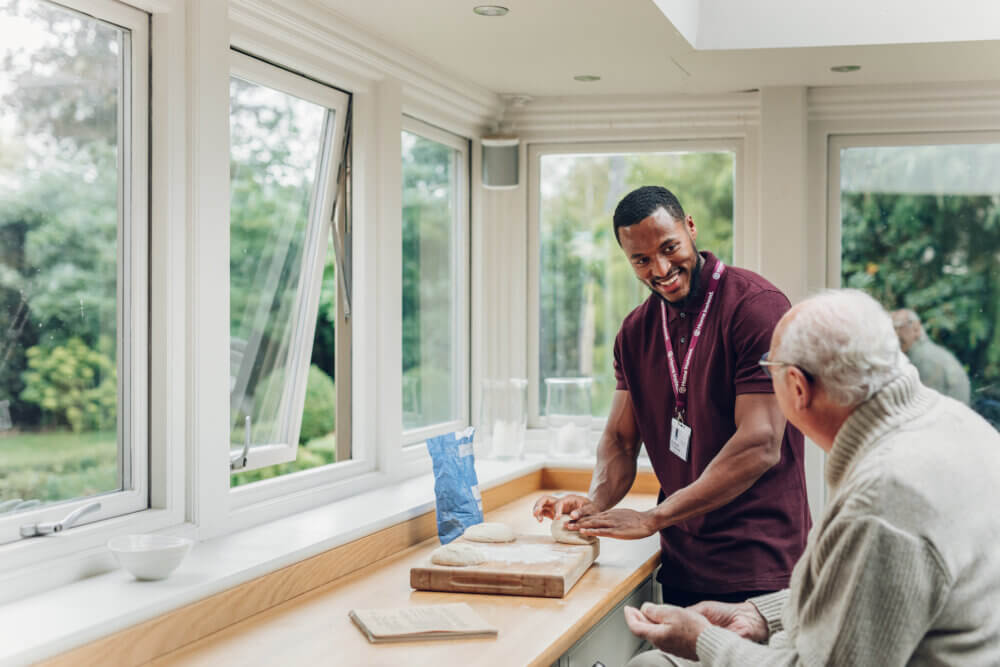
“The quality of care is poor”
The typical model of community care available in the UK doesn’t do much to stem anxieties for families or elderly people. Different strangers coming to the house to care for you in rushed, short appointments, rarely improves mental well-being or care-related anxiety, and it certainly doesn’t enable personal choice and sadly often contributes to a reduced sense of independence.
However, “Companionship” based support (essentially – having someone who knows you well deliver the care), offers a compelling alternative. By matching a caregiver based on shared interests, a personalised care plan that is aimed at maintaining independence or re-enabling formerly enjoyed pastimes, we can directly increase activity levels, self-esteem and the social interaction and stimulation that so many elderly people miss out on.
When this sort of support is provided in the right way, and crucially, isn’t rushed, then support needs can, with a fair wind, remain at a low level and stable for a long time. Caregivers can monitor and anticipate changes in health and respond accordingly. This prevents hospital admissions, and trips to A&E. It also reduces the likelihood of crisis incidents that then require much more significant intervention, such as very expensive respite care, or nursing home support.
Navigating the options: “How do I know if services are good quality?”
There are good independent sources of reference for care quality. Any home care providers delivering personal care services in peoples’ homes are, in the UK, regulated by the Care Quality Commission (www.CQC.org), the same organization responsible for monitoring the quality of provision in hospitals, GP surgeries and care homes across the UK. Anyone can visit CQC’s website to read the publicly available reports written by the inspectors. Services are rated on five key lines of enquiry: whether services are judged to be Safe, Caring, Responsive, Effective and Well-Led. Providers are rated as Outstanding, Good or Requiring Improvement on each category as well as being awarded an overall rating. Our office here in Worthing is rated Good.
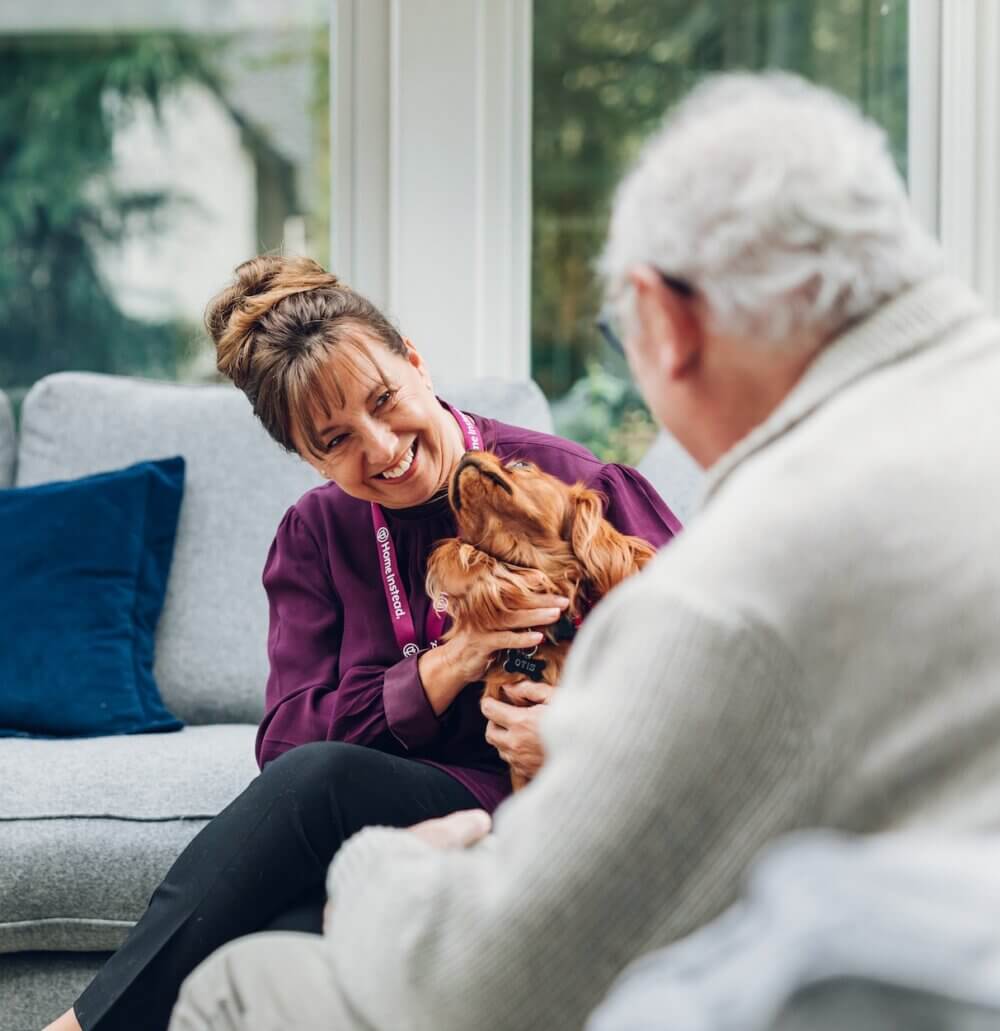
Other good sources of independent customer reviews can be found e.g. www.Homecare.co.uk is the main review source, which contains independently submitted testimonials.
Another good way to research providers is to look them up on Google and Facebook and read what their staff have to say about them. If they look like good employers, they are more likely to keep their customers happy.
Ask your friends, GP surgery, hospital specialists, social workers, mental health professionals etc. for advice. They will usually know what local services have a good – or not so good – reputation.
Finally, if you’ve run out of options, each local authority publishes a care guide. The West Sussex Care Guide is published each year at the end of April and contains a comprehensive list of providers, although it doesn’t show their CQC ratings as these can change throughout the year as services are inspected, so do your own research as well.
- www.cqc.org
- www.homecare.co.uk
- Google and Facebook searches
- West Sussex Care Guide
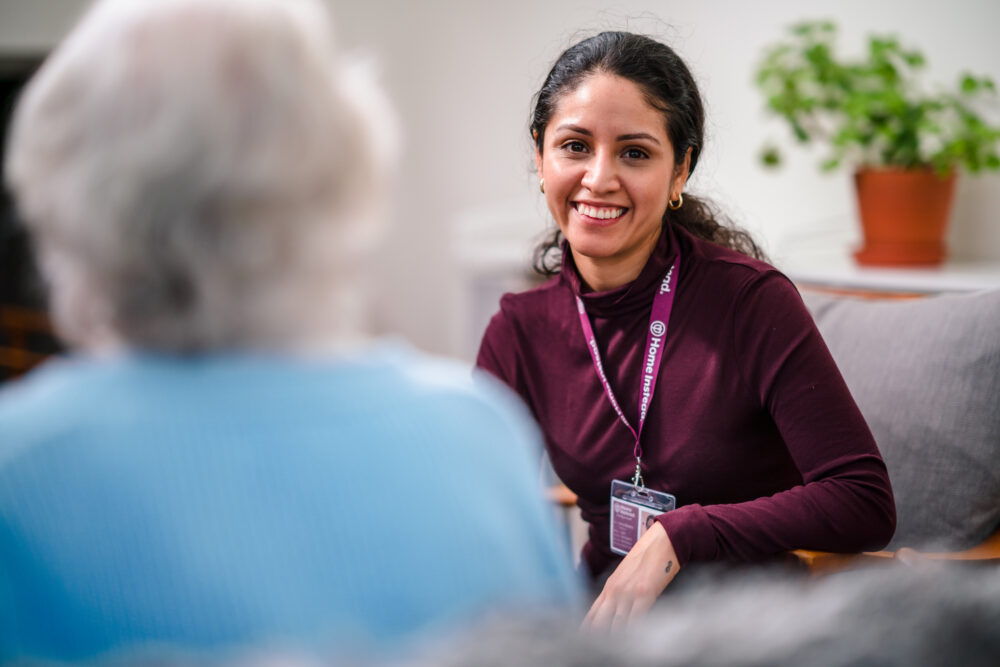
Money matters: “What financial support is available to me and my family?”
Support in the community used to be provided by Health Care Assistants (HCA’s), employed by local councils. Nowadays, local councils commission these services through a vast array of private care providers, or domiciliary care companies. Services are commissioned, broadly speaking, on price rather than quality, so you need to know what to look for.
Financial support for care in the community is assessed by local councils and their employed social workers. In very simple terms, in West Sussex, if you are over the age of 65, require support with food preparation, eating or drinking, washing or dressing, and you have less than £23,500 in savings, you may well be eligible to apply for some form of social care support. If approved, this is available through services commissioned by the council (i.e. their contracted provider organisations), or you can request control of your own budget through a Direct Payment and choose which care provider you want to use, topping up payments if you wish to purchase more care than the council is prepared to fund.
Another form of financial support available to people which is not means tested, is Attendance Allowance. This is available to anyone over the age of 65 who requires help with activities of daily living. For more guidance on how to apply for Attendance Allowance, and whether you or your relative qualify, contact Family Mosaic who can support you through the process.
What type of support will I need? How do I choose?
Levels of support available from care providers typically fall into 3 main categories:
Home Help: for support with activities such as meal preparation, accompanied trips to the shops or health appointments.
Personal Care: including any activities that require personal contact or seeing someone in a state of undress. This might range from support dressing someone or applying creams, to help transferring from bed to chair, washing, showering or bathing.
Specialist Care: for instance support with specific conditions or care that requires specialist training or experience, such as dementia, Parkinson’s or End of Life care. In these situations, continuity of care is essential to provide safe, dignified and caring support. It will also be necessary for the provider to liaise with outside healthcare professionals for the effective ongoing care of the patient.
Live In Care: this involves a care professional living in with the client around the clock. A dedicated one-to-one relationship means that the clients routine will always be observed (unlike in a care home setting where the client is forced to conform to the same routine as everyone else), and it also means one to one company and social stimulation can take place, including person centred activities, nutritional needs and/or treatment for specialist conditions such as dementia or Parkinson’s disease as they progress. Live In care is often more cost effective than a ‘good’ care home and of course allows people to stay in their own home, no matter how much support they need as hourly care visits can be added as well if required.

For any type of support, depending on who else is involved in the care, it may range from a few hours a week, to several hours every day of the week or even Live In care support. What support is needed and how much should be agreed in person, in consultation with the individual receiving the care and, where possible, the close family. It should be documented clearly, with clear outcomes so that everyone is clear on the objectives of the care, and so the effectiveness can be assessed over time by the individual, the family (if appropriate) and the provider.
Summary:
- Look for a service that offers genuine continuity, matching staff
- Make sure they have enough time to build a relationship – an hour minimum where possible
- Introduce care as early as possible so that a relationship is in place before any personal care is needed
More often than not, our advice is to put some form of support in place as early as possible, to ensure a trusting relationship is able to develop between care professional and client before more significant (and often personal) support may be required. But of course, care can only be provided with the full consent of the person receiving it.
By matching the right person for support, care is much more readily accepted, and a trusting relationship very quickly becomes established that transforms the lives of not just the patient, but also the family who were grappling with the options available to them.
For further information please call us on: 01903 206079 or visit us on: www.homeinstead.co.uk/worthing-steyning
